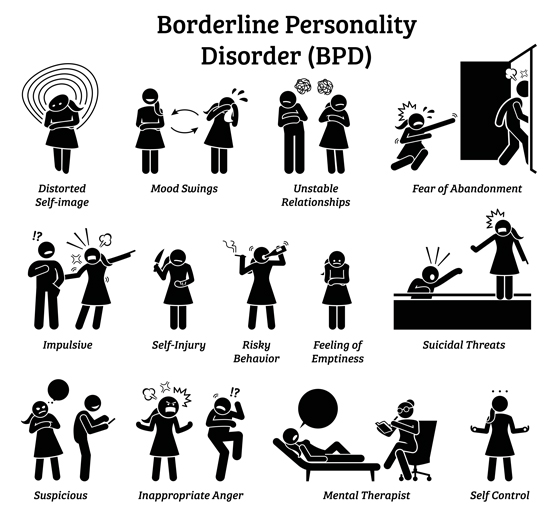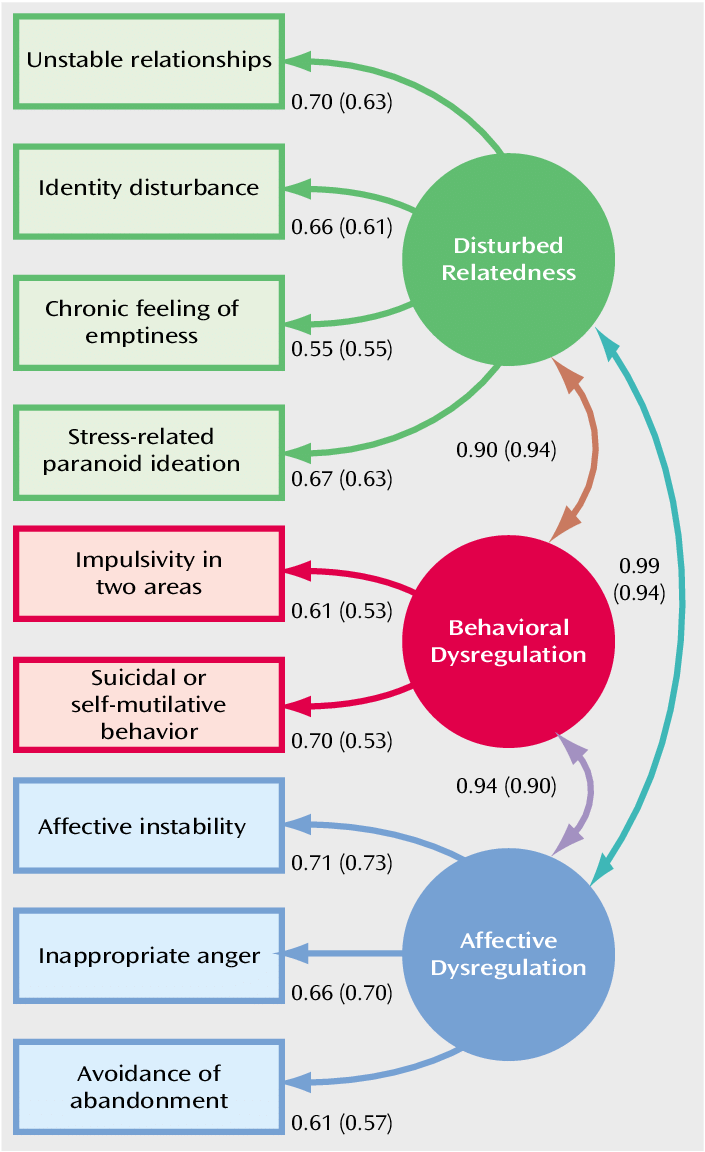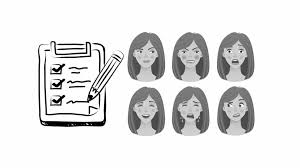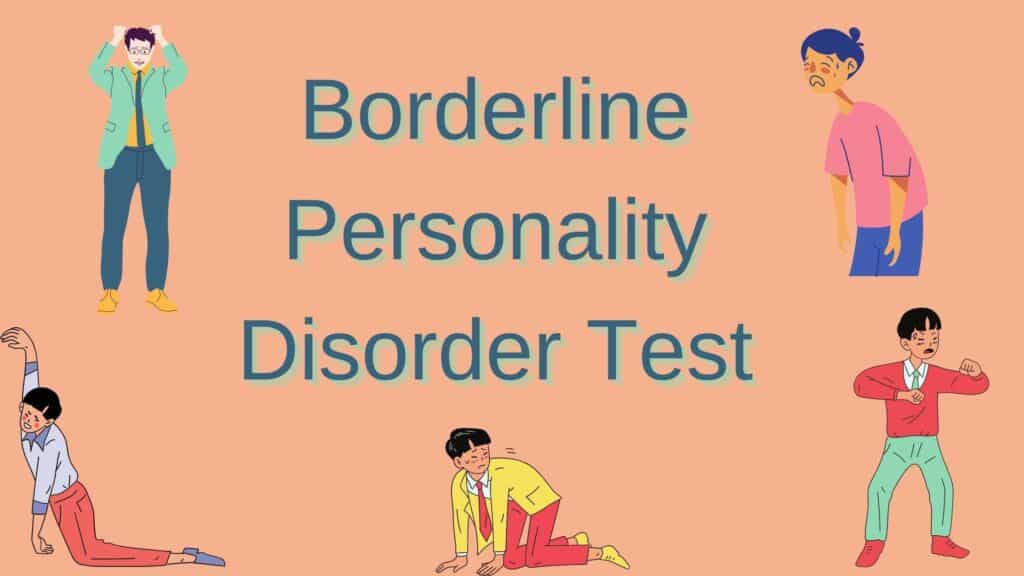Borderline Personality Disorder Test
Borderline Personality Disorder (BPD) is a serious mental health disorder that causes significant emotional distress and dysfunction. The symptoms of BPD include impulsivity, intense mood swings, chronic feelings of emptiness, and unstable relationships with others. A person may also experience difficulty in regulating emotions and thoughts; this leads to impulsive actions such as drug abuse or self-injury. If you think that you or someone close to you has a borderline personality disorder, then it’s time to take the Borderline Personality Disorder Test!
Contents
- 1 Understanding Borderline Personality Disorder
- 2 Borderline Personality Disorder Test
- 3 Questions To Ask Before Borderline Personality Disorder Test
- 4 Time For Borderline Mock Assessment
- 5 Borderline Personality Disorder FAQs
- 5.1 Who is affected by borderline personality disorder?
- 5.2 Is there a cure for a borderline personality disorder?
- 5.3 What treatments are available?
- 5.4 How long does treatment last?
- 5.5 Can you manage borderline personality disorder without therapy?
- 5.6 What should I do if I think I have BPD?
- 5.7 What if I have been diagnosed with BPD?
- 5.8 What should I expect from treatment?
- 6 Conclusion
- 7 A Word From Therapy Mantra
Understanding Borderline Personality Disorder

A borderline personality disorder is a mental illness that causes significant distress in the person who has it and those around them. It’s characterized by persistent feelings of emptiness, inappropriate or extreme emotional reactions to events, impulsive behaviors such as drug abuse and self-injury, unstable relationships with others (such as friends or family), difficulty controlling emotions and thoughts, and self-harming behaviors.
There is no known cure for borderline personality disorder (BPD), but there are various treatment options that can help manage the symptoms of BPD to allow a person with BPD to live as normally as possible. Unfortunately, because many people who have this mental illness do not seek out or receive proper treatment, BPD is often misunderstood and misdiagnosed.
Symptoms of Borderline Personality Disorder

There are many signs and symptoms of borderline personality disorder. Some of the most common include:
- Persistent feelings of emptiness or boredom
- Chronic feelings of emptiness or loneliness
- Impulsive behaviors such as drug abuse, reckless driving, and spending sprees
- Self-harming behaviors such as cutting or overdosing on drugs or alcohol
- Inappropriate or extreme emotional reactions to events – such as laughing hysterically at a tragedy or getting extremely angry over minor things
- Unstable relationships with others – people with BPD often have difficulty maintaining healthy and stable relationships due to their intense mood swings and impulsiveness
- Difficulty controlling emotions and thoughts – people with BPD often have difficulty regulating their emotions and impulses, which can lead to impulsive actions or behaviors
Borderline Personality Disorder Test

A borderline personality disorder test is an assessment tool that can be used to screen people for symptoms of BPD, as well as help them understand the disorder better and find out what treatment options are available in their area. In some cases, your doctor may advise you to take a BPD test to determine if you have the disorder or not.
Reasons I Take Borderline Personality Disorder Test
If you think that someone close to you has a borderline personality disorder, they must take a borderline personality disorder test to whether they do indeed suffer from this mental illness or not. It’s also important for people who have BPD to take the test to understand their condition and find out about any available treatment options.
The Time I Take Borderline Personality Disorder Test
It’s important to remember that there is no one “right” time to take a borderline personality disorder test. If you think that you or someone close to you may have BPD, it’s best to consult with a mental health professional who can provide an accurate diagnosis. However, if you are simply interested in taking a borderline personality disorder test for personal knowledge or curiosity, then you can try out the test available here.
Information I Get From BPD Test
The borderline personality disorder test is a free online assessment tool that can be a way out to screen you for symptoms of BPD. The results are not to replace professional diagnosis or advice, and should only help inform you on the subject matter (in other words, use your judgment when it comes to taking this test).
The Procedure For a Borderline Personality Disorder Test
There is no specific procedure for a borderline personality disorder assessment tool. They can be helpful to give an investigative view of the symptoms of BPD and help you to understand the disorder better. However, most BPD tests are designed to screen people who suspect they may have the symptoms of BPD. And will then direct them toward more comprehensive diagnostic testing to determine whether or not they have BPD.
Accuracy For BPD Test
The accuracy of borderline personality disorder tests can vary depending on the test itself. However, most BPD tests are fairly accurate in diagnosing the disorder. It’s important to note that a diagnosis of BPD is not made solely by taking a personality disorder test – it’s best to consult with a mental health professional for an accurate diagnosis.
NOTE: Our test is based on DSM-IV criteria for diagnosing BPD, it is likely to be accurate for most people who meet those criteria.
Questions To Ask Before Borderline Personality Disorder Test
Below are some sample questions that you may expect in a borderline personality disorder test. Do you:
- Often feel overwhelmed by your emotions?
- Have trouble regulating your emotions?
- Find yourself engaging in risky behaviors, such as drug abuse or unsafe sex, to cope with your emotions?
- Feel like you’re constantly on edge or that bad things are always about to happen?
- Have intense and unstable relationships with others?
- Are you often impulsive and unable to control your behavior?
- Feel like life is not worth living, or that there’s no point in trying to change your situation?
Time For Borderline Mock Assessment
It’s time for a quick borderline personality disorder test. Take the following ten-question quiz to assess whether or not someone might have a borderline personality disorder – even if they don’t have the formal diagnosis:
- Do you have intense and unstable relationships with others?
- Are you often impulsive and unable to control your behavior?
- Do you feel like life is not worth living, or that there’s no point in trying to change your situation?
- Does the thought of being abandoned terrify you – even if it’s just a possibility?
- Do you feel like you’re constantly on edge or that bad things are always about to happen?
- Are you often overwhelmed by intense emotions?
- Do you find it difficult to regulate your emotions?
- Do you frequently engage in self-harm behaviors, such as cutting or burning yourself?
- Have you ever attempted or threatened suicide?
Result And Interpretation
If you answered yes to any of these questions, you may have a borderline personality disorder. If your answers cause concern, please consult with a mental health professional for an accurate diagnosis and appropriate treatment. Remember – there is no shame in seeking help. You are not alone.
Disclaimer: This quiz is not a substitute for diagnosing BPD. For an accurate diagnosis, please consult with a mental health professional.
If I Don’t Like My Test Results
Don’t worry about your borderline personality test result. Remember, the purpose of this assessment is to give you a general idea of whether or not someone may have BPD. If you don’t like what you see in our online borderline personality disorder test – take it again!
The Ways To Deal With Test Results
The best way to deal with borderline personality disorder test results is to get a diagnosis from your doctor or therapist. They can determine whether you are suffering from BPD, and then offer the most appropriate treatment for your symptoms.
To request a borderline personality disorder assessment, simply tell your doctor or therapist that you’d like to take a test. If they’re unable to do this in their office, they should be able to recommend someone who can.
Borderline Personality Disorder FAQs
Who is affected by borderline personality disorder?
BPD is a relatively common mental illness, affecting around two percent of the population. It can occur in people of any age, but it’s most common in young adults.
Is there a cure for a borderline personality disorder?
There is no cure for BPD, but treatment can help you manage your symptoms and live a more fulfilling life.
What treatments are available?
There is no one single way to treat BPD, as different people will have varying levels of success with various types of treatment. However, all forms of therapy – especially Dialectical Behavior Therapy (DBT) – are effective in treating BPD.
How long does treatment last?
BPD is a chronic condition, meaning that it can take time for you to see an improvement in your symptoms. The length of therapy varies from person to person and may depend on the severity of your symptoms as well as any co-occurring mental illnesses you may have. However, most people require some form of treatment for at least one year.
Can you manage borderline personality disorder without therapy?
While it is possible to manage BPD without therapy, this can be difficult and often leads to relapse. To get the best results, we recommend that you seek out therapy from a qualified professional.
What should I do if I think I have BPD?
If you think that you may have BPD, it’s important to seek out professional help. This is a serious mental illness and left untreated can lead to significant problems in your life. There are many treatments available that can help you manage your symptoms and live a more fulfilling life.
What if I have been diagnosed with BPD?
If the formal diagnosis is that you have BPD, you must seek treatment right away. There are many different types of therapy available and depending on your symptoms as well as your personal preferences, you may find one type of therapy more beneficial than another.
Dialectical Behavior Therapy (DBT) – which focuses on helping you learn how to regulate your emotions and tolerate distress – is particularly effective in treating BPD. However, any form of therapy (including cognitive-behavioral therapy or talk therapy) can be effective when used in combination with medication.
What should I expect from treatment?
Borderline personality disorder treatment can be challenging and it may take some time before you start to see a change in your symptoms. However, the results of therapy will vary depending on various factors including:
- How motivated you are for treatment
- The type of BPD therapies available (and which one is best suited for you)
- The severity of your symptoms
- Any co-occurring mental illnesses you may have.
Most people require some form of treatment for at least one year, but the length and type of therapy will vary from person to person. You must discuss your treatment plan with your therapist and make sure you’re on the right track.
Conclusion
If you have a borderline personality disorder, likely, your symptoms will significantly interfere with your daily life and relationships. If this is the case for you or if there are other issues in your personal life or work environment (such as depression), then it’s important to seek out treatment as soon as possible. Many different types of therapy available can help you manage your symptoms and live a more fulfilling life.
A Word From Therapy Mantra
Your mental health — Your psychological, emotional, and social well-being — has an impact on every aspect of your life. Positive mental health essentially allows you to effectively deal with life’s everyday challenges.
At TherapyMantra, we have a team of therapists who provide affordable online therapy to assist you with issues such as depression, anxiety, stress, workplace Issues, addiction, relationship, OCD, LGBTQ, and PTSD. You can book a free therapy or download our free Android or iOS app.


